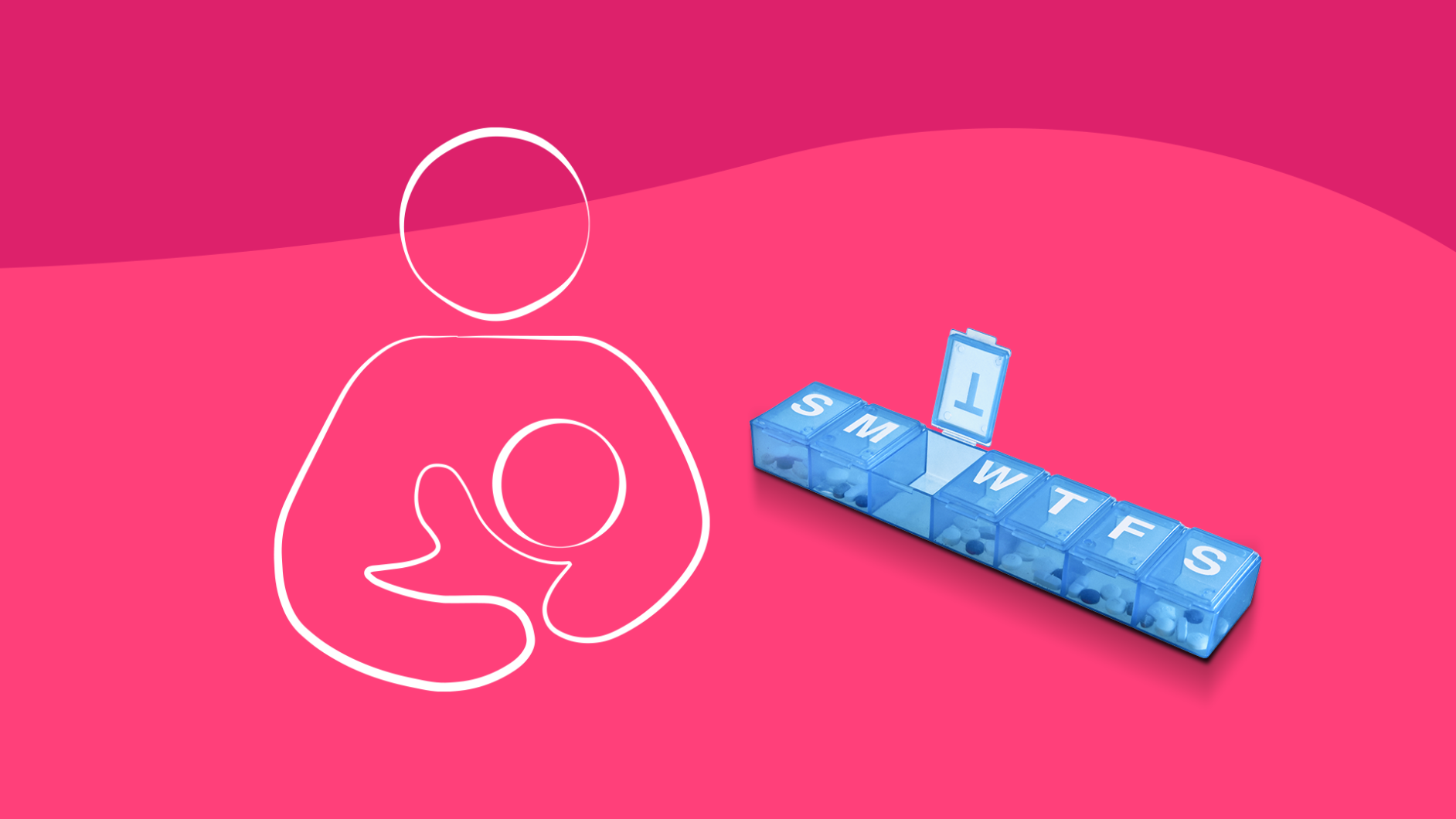Key takeaways
Studies show it’s difficult to stay compliant with medications that require more than once-daily dosing.
This is especially true for new moms experiencing postpartum memory loss and sleep deprivation.
Simple strategies to improve medication adherence include using a pill box, setting reminders on smart devices, and consulting with pharmacists about adherence support technologies and programs.
Six in 10 people in the U.S. take prescription medication, according to the Kaiser Family Foundation. Remembering to take meds can be a challenge in the best of times. When life is chaotic, or routines change, it’s more difficult to stay on track with a daily pill.
There are many different life transitions that disrupt daily routines, but becoming a mother is arguably one of the most challenging. It’s easy to forget a dose while in the throes of sleepless nights, near-constant feeding of a newborn, and perpetual diaper changes.
For new mothers who take prescription medication, or even over-the-counter medications, it’s important to stay consistent and find simple ways to keep track of what pill you’ve taken, and when. Relying on memory when taking prescription drugs is never advisable, but combining sleep deprivation and slight postpartum memory loss is especially unhelpful.
“Studies have shown that it is difficult to remember to stay compliant with any medication that is dosed more than once per day,” says Danielle Plummer, Pharm.D., a pharmacist who specializes in supporting women with hyperemesis gravidarum, a form of extreme morning sickness.
Remembering to take meds matters
The added pressure of taking care of a newborn makes it even more challenging to remember medications, but remaining consistent is crucial for the mother’s health and will only aid in her ability to parent, Dr. Plummer says.
This is especially true of prescriptions taken for mental health such as depression medication and anxiety medication. “Most medications must be taken every day in order to keep a steady level of this medication in your bloodstream,” says Carole Lieberman, MD, a California-based psychiatrist.
Dr. Lieberman says that taking medications inconsistently can lead to a variety of negative side effects, from not getting the full therapeutic effect, or even experiencing symptoms breaking through—such as suicidal ideation or a spike in blood pressure.
RELATED: When pregnancy and depression happen at the same time
3 Postpartum medication reminders
1. Try a pill box.
Both Dr. Lieberman and Dr. Plummer say that the simplest and easiest solution for remembering to take medication is purchasing a pill box. With a pill box, there’s no guessing, mixing up doses, or trying to remember if a pill was taken already that day.
“This way you can check the pill box at the end of the day to make sure you didn’t miss any doses,” Dr. Lieberman says.
Purchase a pill box that works for your needs, whether that’s one with a variety of daily compartments, or just one daily compartment, says Dr. Plummer.
2. Create a reminder system.
Dr. Plummer also suggests setting an alarm on your smartphone or smart watch, downloading apps, such as Medisafe or Mango Health, or having paper sheets and calendars for more tactile learners.
3. Talk to your pharmacist.
Many pharmacies are now developing technologies and programs to help people stay compliant. If you’re expecting a baby, or know that you’ll be experiencing a major life change that will disrupt your routine, talk to your local pharmacist about ways to stay compliant during your life transition.
Struggling to remember prescription medication is not uncommon, but there are plenty of supportive tools available to keep you consistent, allowing you to transition into motherhood more smoothly.
RELATED: What to know about birth control after pregnancy
- Public opinion on prescription drugs and their prices, KFF (2024)
- Pregnancy ‘does cause memory loss’, The Guardian (2008)




